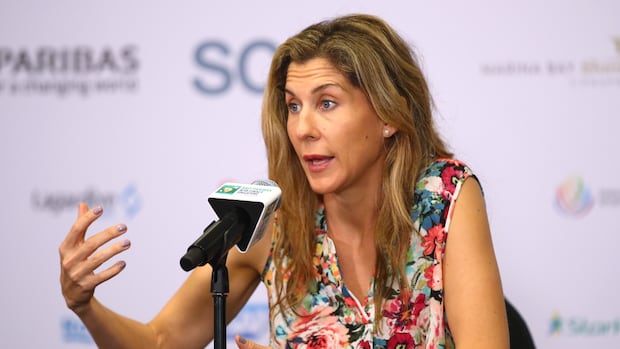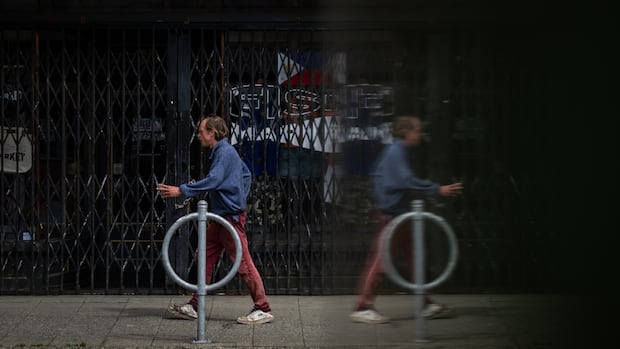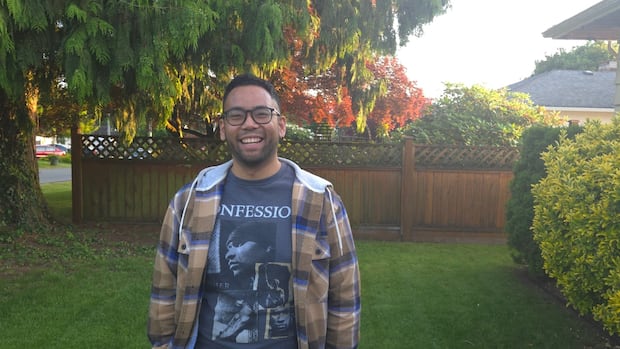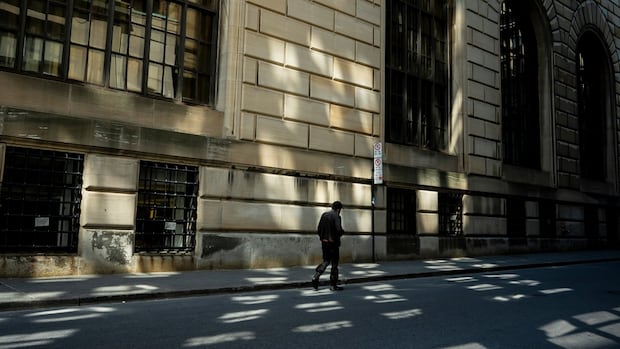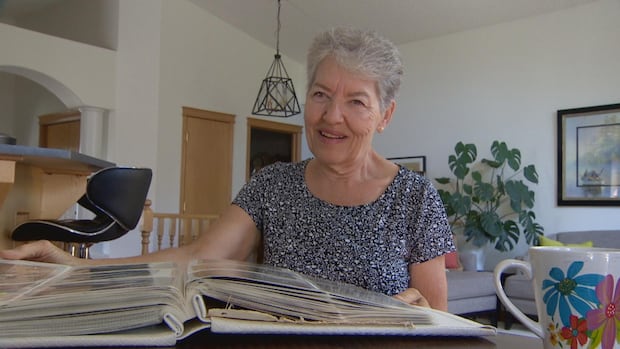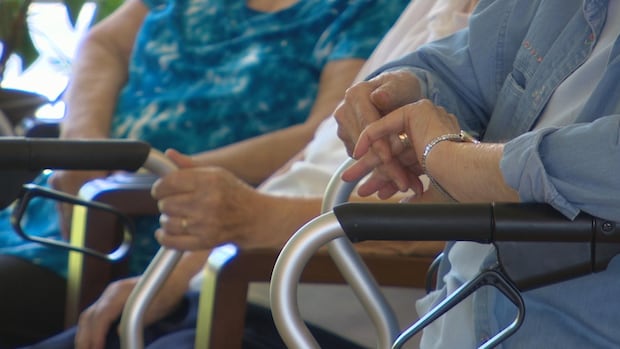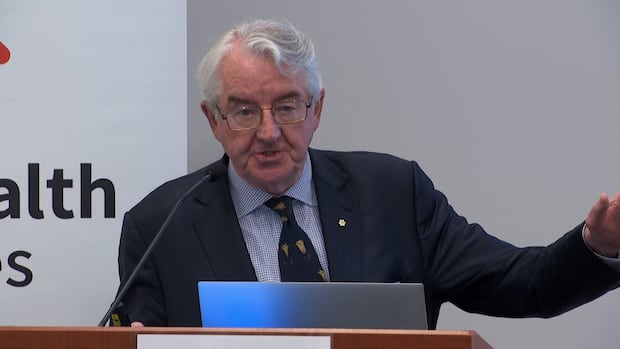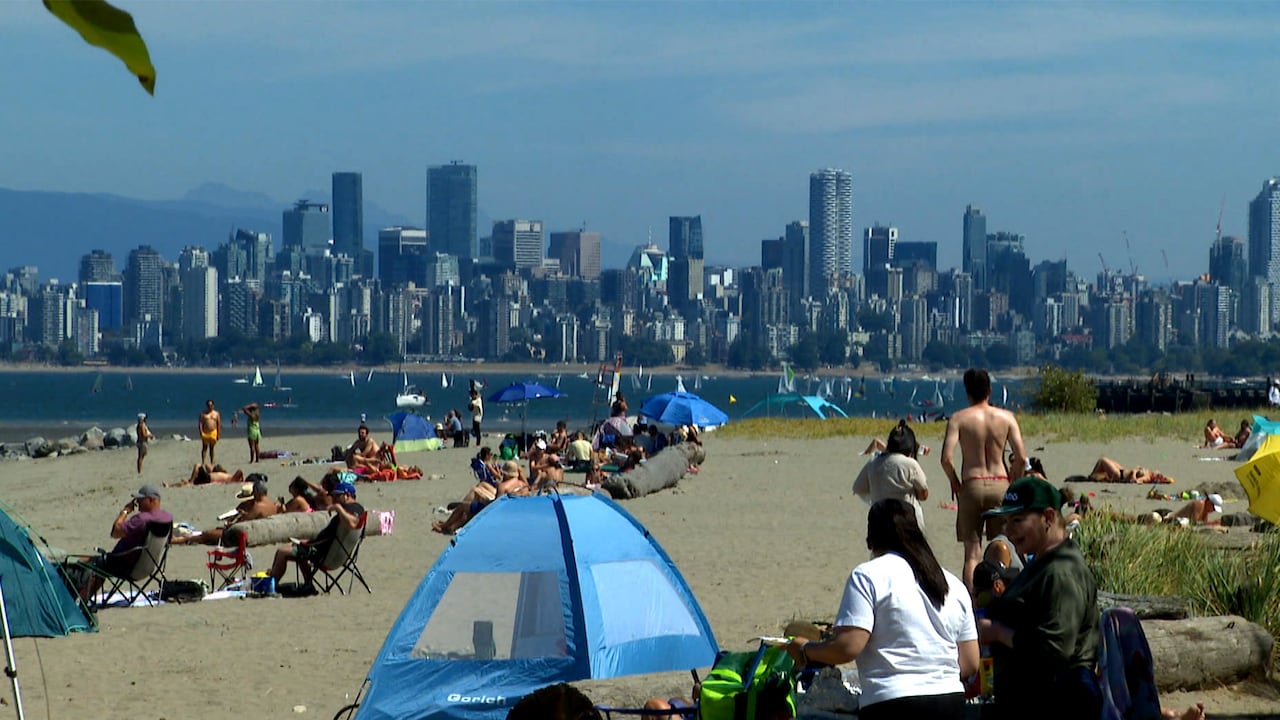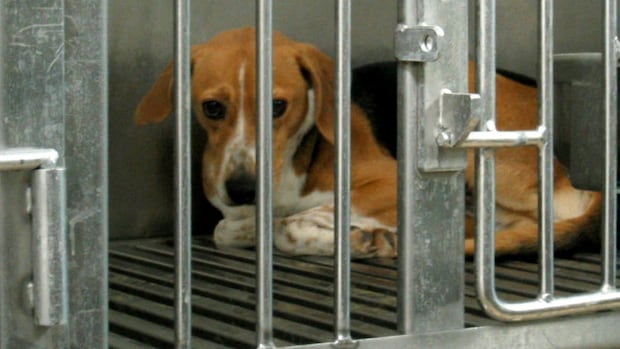With at least one death reported since Sunday, Montreal Public Health is urging people to keep an eye out for heat-related symptoms even once heat dissipates.
A spokesperson for Montreal Public Health, Tudor Matei, said the agency has been notified of five other heat-related deaths this year, after temperatures soared in late June.
The health agency is asking emergency doctors to report any deaths suspected to be linked to heat on days when Environment Canada issues heat warnings for the city.
Temperatures exceeded 33 C in Montreal Sunday and Monday, with Tuesday's high expected to reach 34 C. Environment Canada forecasts a high of 29 C on Wednesday, with seasonal temperatures returning Thursday.
Emergency rooms throughout the city say they're already seeing patients with heat-related symptoms. But health officials say the busiest days often come after it cools down. Medical professionals warn the health dangers can linger for days after.
"Over a few days, people are warm, their bodies are compensating, but towards the end of it, when it persists for several days, we start to see that people get tired, and then their state tends to decline and that's where we get a peak," said Vanessa Grillo, with Urgences-santé.
That means, even when the most recent heat wave is officially over, your body may still be at risk.
Heat can cause a range of illnesses: heat cramps, exhaustion, stroke, rash and fainting due to overheating and dehydration.
Doctors say it's critical to know when to get help.
"Every year we try to avoid this kind of death because it's preventable and we really need people to be aware that it's not just casual heat," said Dr. Anne-Sara Briand, with Montreal Public Health. "It's deadly."
WATCH | Health officials urge caution in Montreal heat: As the hot weather lingers in Montreal, emergency rooms throughout the city say they’re seeing patients with heat-related symptoms. But health officials say the busiest days often come after the heat dissipates.Health experts say staying hydrated, keeping cool and checking in on neighbours can save lives — especially for seniors and those with chronic illnesses.
Montreal Public Health has launched a campaign called Visiter une personne aînée isolée — which translates to Visit an isolated senior — in partnership with the city and police, Briand said.
The program involves door-to-door visits to check for fraud, mistreatment and heat-related risks. It helps identify the most vulnerable seniors, provide advice and add them to a contact list for support during heat waves, she said.
Earlier this summer, Matei, a toxicologist with Montreal Public Health, said in the context of climate change and the region's rising temperatures, "it's more and more of a problem."
During the summer heat wave in 2018, 66 people died in Montreal. Around two-thirds of those deaths were seniors with underlying health conditions.
A 2024 study from Quebec's Institut national de la recherche scientifique (INRS) suggests that heat is responsible for 470 deaths per year in the province, and that the number will increase if nothing changes. Along with deaths, there are over 200 hospitalizations and thousands of emergency room visits.


